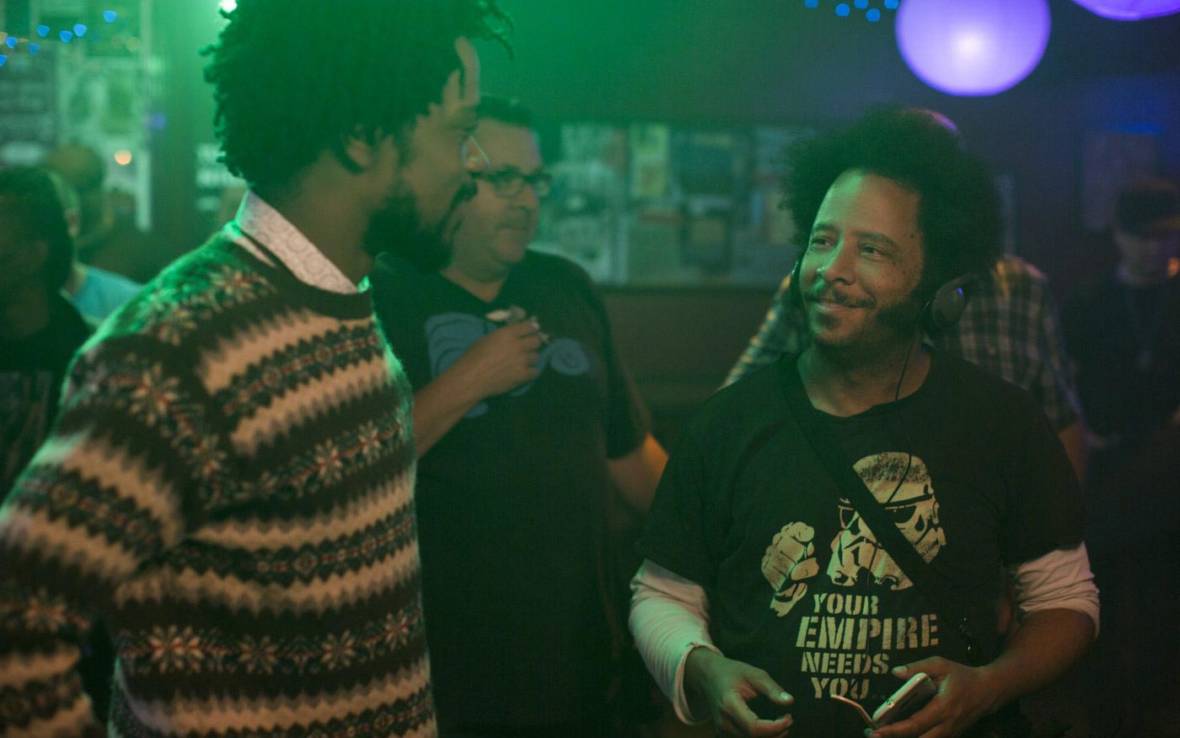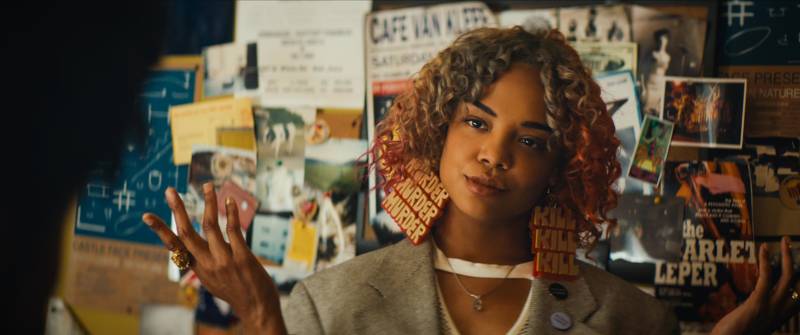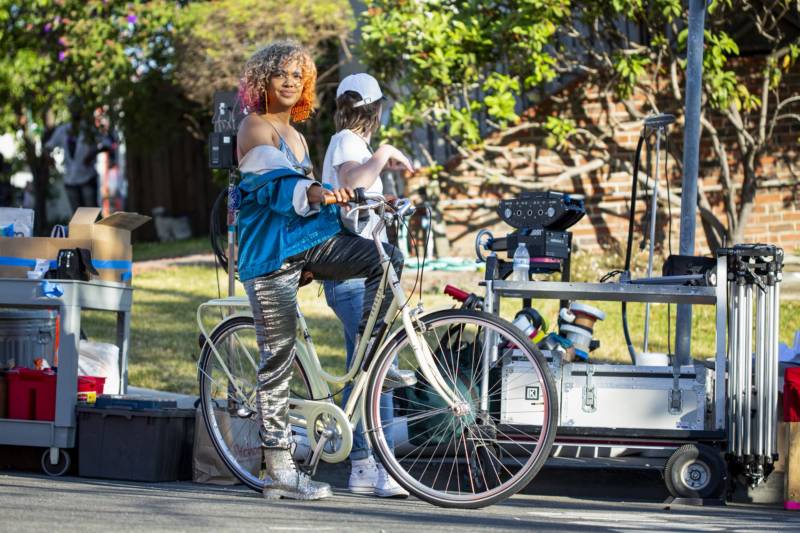If you feel your cheeks burning with familiarity as you watch Boots Riley’s directorial debut Sorry To Bother You, you’re not alone—especially if you’re from Oakland. Whether it’s the film’s reference to The Rusty Skupper, where Oakland party promoter Geoffrey Pete once threw parties, or the iconic Cathedral Building at Telegraph and Broadway, or downtown dive bar The Layover, I caught about 20 hot flashes as a veritable déjà-vu checklist unfolded on the screen. Telemarketing job with ex-punk middle management? Check. Boyfriend that lived in a garage? Check. Paying for gas for your not-even-close-to-legal rustbucket car with pocket change? You know it.
Set in an alternate-universe Oakland, Sorry To Bother You follows Cassius Green, played by Atlanta’s Lakeith Stanfield, as he makes one Faustian moral compromise after another in pursuit of paying the bills. Cassius’ downward spiral begins with a coworker (Danny Glover) advising him to “use your white voice” (a tone reminiscent of a children’s show puppet, dubbed by real-life white guy David Cross) in order to climb the ladder at his telemarketing job (set in the Kaiser building in downtown Oakland). It then winds its way through a dark corporate netherworld of slimy despair. The “don’t sell out” moral of the story is delivered with all of the subtlety of a circus clown with an erection, but appropriately so—there’s nothing subtle in being a person of color fighting to survive capitalism.
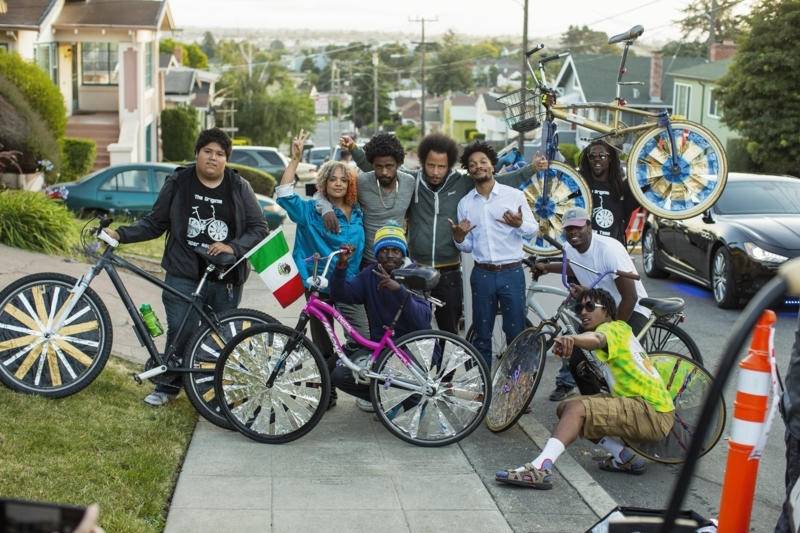
Could there be parallels between Cassius’ rise from telemarketing pit worker to “power caller” and Riley’s path from hometown activist musician to widely lauded Hollywood director? Riley may not be as accessible as he once was as he undertakes a grueling promotional tour for the film, but even a brief conversation puts any fears of moral compromise to rest.
When I ask Riley a question about his movie, it turns into a lengthy history on the necessity of rent control. In other words, this is still the same Boots Riley that most people know from his 25 years fronting radical East Bay hip-hop group The Coup. And it’s Riley’s intimacy with the Oakland that a lot of us know—full of artists and activists, diverse, and currently under siege by corporate interests—that lends an undercurrent of believability to the kaleidoscopic version of The Town presented in Sorry To Bother You. Degrading jobs, homelessness, corporate greed, and police brutality are viewed through a cartoon lens that’s equal parts hilarious and horrifying. It’s a balancing act that could easily take a wrong turn in the hands of an outsider with a two-dimensional view of Oakland, but in Riley’s hands, there’s a lot of truth in the bright and absurd universe that he’s constructed.
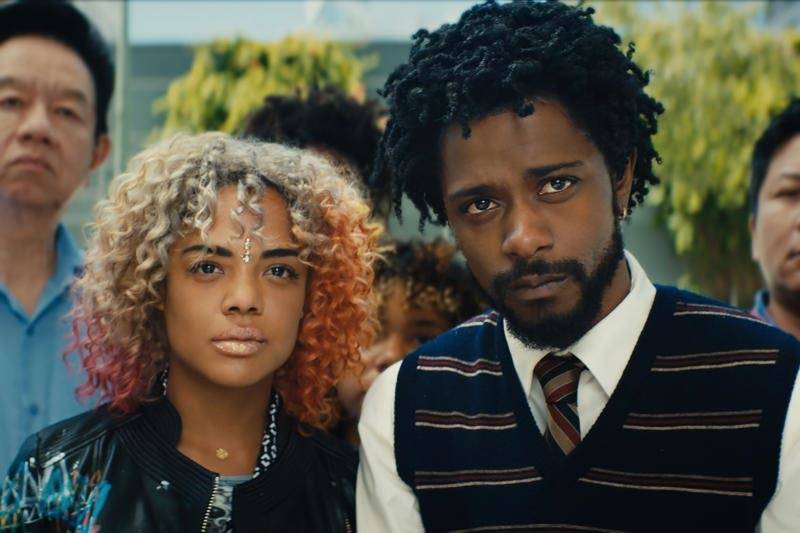
Riley will be the first to tell you he didn’t construct it alone. True to his Communist roots, Sorry To Bother You was a collective effort. In addition to phenomenal production designer Jason Kisvarday (Swiss Army Man) and costume designer Deirdra Govan, a host of local talent contributed to the color and animated details that make the film as fun to watch as an R-rated version of Pee Wee’s Playhouse. The graphic lettering that appears throughout the film was designed by local children’s book illustrator J. Otto Seibold. You might be able to spot a few of your friends and neighbors in the protest scene on Franklin Street alongside an “Adult Content” sculpture created by conceptual artist Spy Emerson. Rapper and philanthropist Mistah F.A.B. has a memorable cameo. (As for institutional support, Riley got assistance from SFFILM, the Rainin Foundation, and McSweeney’s, which originally published the script in 2014, among others.)
